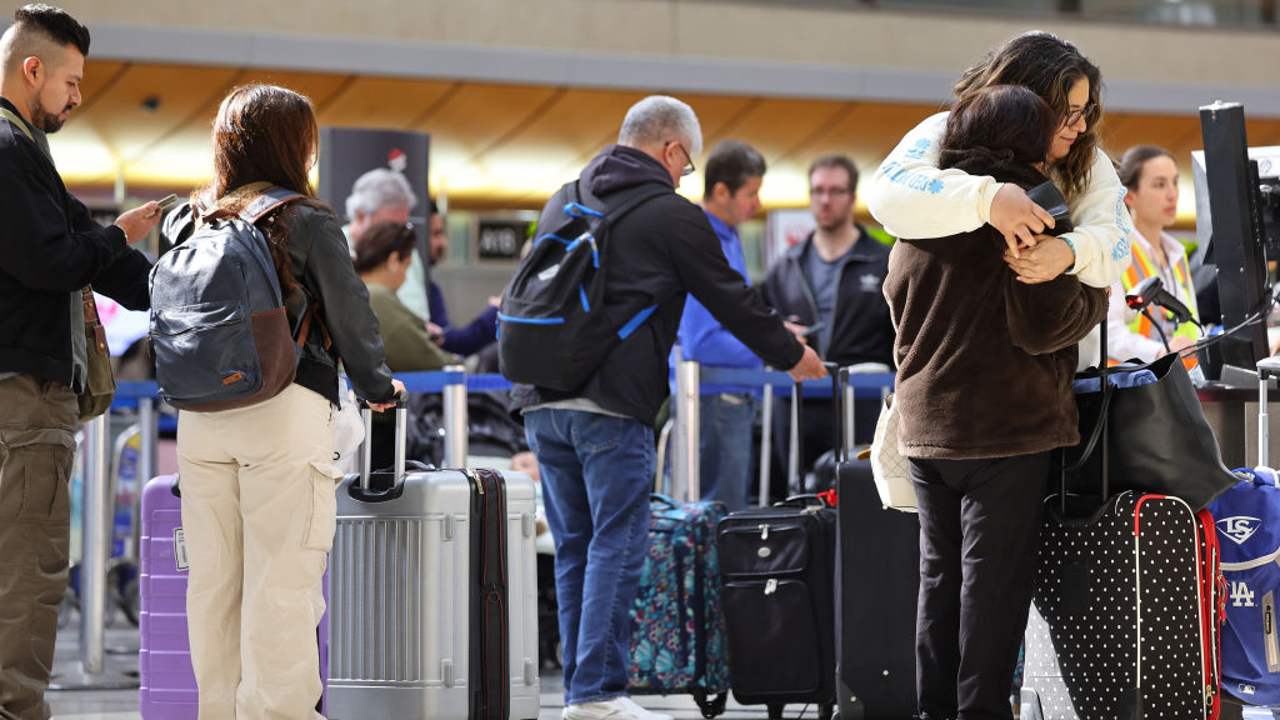Copyright FOX 9

As the government shutdown lingers and continues to impact airports, travelers are growing concerned about whether this could impact the upcoming Thanksgiving travel. Last year, according to the Federal Aviation Administration, 232,000 flights took off from Nov. 24 through Nov. 28, a new record for the Thanksgiving holiday. With that came over 12 million people who passed through TSA checkpoints marking an increase of over 400,000 from 2023. RELATED: Airlines step up as thousands of air traffic controllers go unpaid What they're saying: U.S. Transportation Secretary Sean Duffy has been warning that travelers will start to see more flight disruptions the longer controllers go without a paycheck. "Every day there’s going to be more challenges," Duffy told reporters last week outside the White House after a closed-door meeting with Vice President JD Vance and aviation industry leaders to talk about the shutdown’s impact on U.S. travel. RELATED: Major airports issue ground stops due to air traffic controller staffing shortages amid government shutdown Government shutdown and air travel Why you should care: Travel delays were adding up at airports across the U.S. last week as the government shutdown drags on, putting even more pressure on air traffic controllers who have been working without pay for a month. The FAA on Friday reported staffing shortages that were causing flight delays at a number of airports, including in Boston, Phoenix, San Francisco, Nashville, Houston, Dallas and the Washington, D.C. area. Airports serving the New York City area — John F. Kennedy International Airport, LaGuardia Airport and Newark Liberty International Airport — were also experiencing delays averaging around two hours, according to the FAA. RELATED: Government Shutdown 2025 Update: Day 34 with no deal as standoff nears historic record Staffing shortages can occur both in regional control centers that manage multiple airports and in individual airport towers, but they don’t always lead to flight disruptions. According to aviation analytics firm Cirium, flight data showed strong on-time performance at most major U.S. airports for the month of October despite isolated staffing problems that surfaced throughout the month. Most controllers are continuing to work mandatory overtime six days a week during the shutdown, the National Air Traffic Controllers Association said. That leaves little time for a side job to help cover bills, mortgage payments and other expenses unless controllers call out. Government shutdown latest Dig deeper: The government shutdown is poised to become the longest ever this week as the impasse between Democrats and Republicans has dragged into a new month. Millions of people stand to lose food aid benefits, health care subsidies are set to expire and there are few real talks between the parties over how to end it. RELATED: SNAP benefits latest: Trump administration says partial funding coming President Donald Trump said in an interview aired on Sunday that he "won’t be extorted" by Democrats who are demanding negotiations to extend the expiring Affordable Care Act subsidies. Echoing congressional Republicans, the president said on CBS’ "60 Minutes" he’ll negotiate only when the government is reopened. Trump’s comments signal the shutdown could drag on for some time as federal workers, including air traffic controllers, are set to miss additional paychecks and there’s uncertainty over whether 42 million Americans who receive federal food aid will be able to access the assistance. Senate Democrats have voted 13 times against reopening the government, insisting they need Trump and Republicans to negotiate with them first. Trump said in the "60 Minutes" interview that the Affordable Care Act — often known as Obamacare because it was signed and championed by then-President Barack Obama — is "terrible" and if the Democrats vote to reopen the government, "we will work on fixing the bad health care that we have right now." Democrats feel differently, arguing that the marketplaces set up by the ACA are working as record numbers of Americans have signed up for the coverage. But they want to extend subsidies first enacted during the COVID-19 pandemic so premiums won’t go up for millions of people on Jan. 1.



